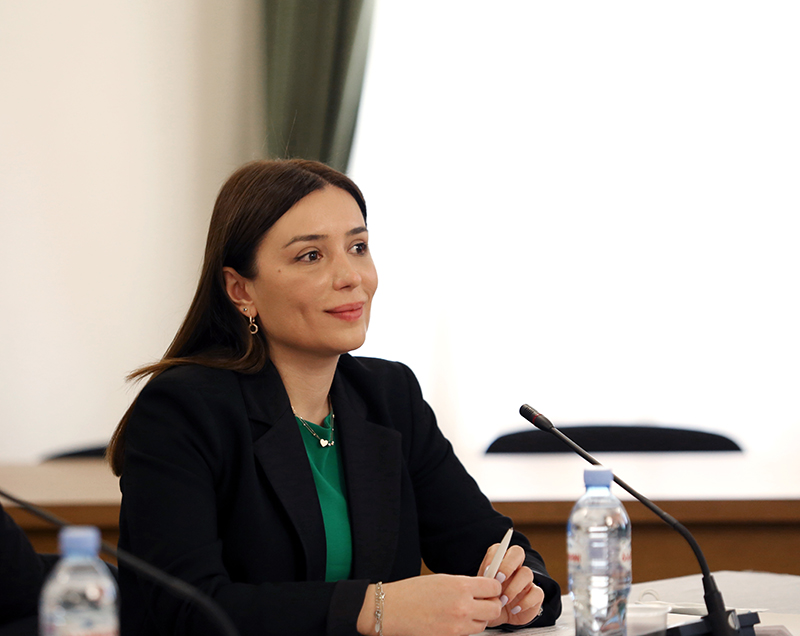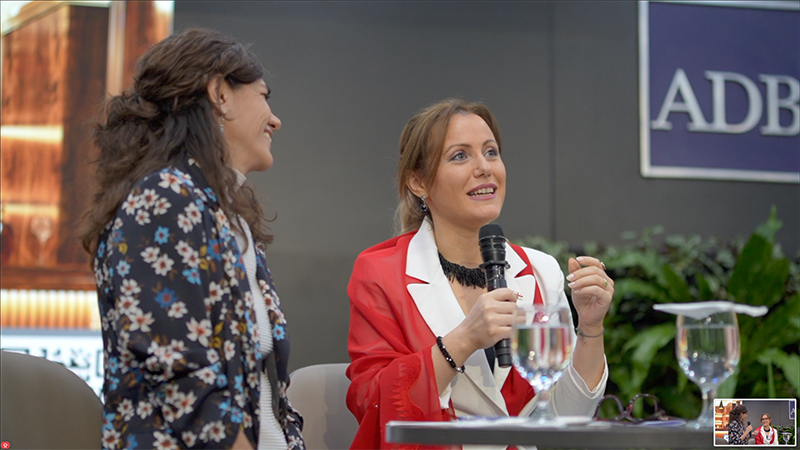Responsible Consumption and Production Leader

Social enterprise Leader, which operates in Gori in the Shida Kartli region, was selected as the winner of the Corporate Responsibility Award 2021 in the category of Responsible Consumption and Production.
The threat of global warming has reframed many pressing global issues and shown how important it is to reduce the harmful impact of human activities on the environment. Multiple UN Sustainable Development Goals aim at this. Goal 12 in particular envisages that companies incorporate the following approaches in their activities as much as possible, namely, they should: adopt waste management and sustainable use of natural resources at a policy level and ensure their implementation; reduce waste generation and use of harmful chemical elements in the production cycle; raise consumer awareness on waste reduction, recycling, recovery and environmental protection; support the development of waste reduction research, technology and infrastructure; promote sustainable tourism, creating jobs, promoting local culture and products.
The Project by Leader, Recycling Sewing Waste, corresponds with the issues mentioned above. The social enterprise, established in 2016, initially provided training and employment for socially vulnerable women. Since 2019, the company has developed a strategy for the production of recycled waste: it purchased a fabric shredder, supporting a zero-waste policy. In addition, since 2020, Leader shares its experience with young people in Gori municipality in the field of waste management and circular economy. Leader founder Nino Giorgadze talks about the victory and the responsibilities the company has assumed in receiving the award.
– Why did you decide to participate in the Corporate Responsibility Award Business for Sustainable Development competition? What was the main motivation?
– Participation in the competition was triggered by several factors: first, we think that the specifics and activities of the company fully meet the criteria of the competition. In addition, we want more people to know about our initiatives. We believe that the implementation of social goals does not require a particular scale – even a small enterprise can say a great deal. Especially in a region like Shida Kartli, where such a project can be a major step for the development of society.
– Tell us more about the project. What makes it stand out and what role will it play in the future, both for the development of your company and business in general?
– Social sewing company Leader is one of the first in the region, at the end of 2019 began to reuse textile waste, which involves the sorting and complete recycling of fabric waste. We also make textile bags to reduce the use of polyethylene bags.
A year ago, we created a new production line Limo – clothes for children aged 2-12, where we efficiently use fabric waste to create clothes or specific details. In addition, we have launched an environmental awareness campaign – Let’s take care of the Earth – during which we placed images in the form of embroidery on children’s clothes, which subconsciously develops the child’s desire to protect the environment.
A year of work practice has shown that our vision and strategy for textile waste reuse and zero-waste is correct and commercially viable for both waste reduction and the development of a new production line.
We have developed a strategy for the production of recycled waste and we have purchased a fabric shredder (which is the only one in Georgia).
In addition, since 2020 we have been sharing experience with enterprises and young people in Gori Municipality in the field of waste production and circular economy. We try to activate this issue through social media, local television, as well as stickers on the packaging of our product and embroideries. In addition, bins with specific information banners were placed in the supermarket, where textiles are collected; a memorandum of cooperation has been signed with six large garment enterprises. By the end of 2022, we will be processing 10 tonnes of textile waste under an agreement with the garment enterprises, thus contributing to the promotion of sustainable consumption.
– In your opinion, how important is the existence of this award for society? Will corporate responsibility incentives persuade consumers to favor responsible companies?
– Fortunately, consumers have started preferring companies with a high sense of corporate responsibility. I would also like to mention the commitment of large companies that give priority to companies with corporate responsibility during procurements.
Moreover, the award is particularly important for us, because the success stories of small companies set an example for other businesses and ultimately change the ecosystem, which will bring a lot of positive results.
– What does this victory mean for you and how does your company intend to further develop the culture of corporate responsibility?
– Winning is a great responsibility and motivation for Leader. Our enterprise was established in 2016, initially just to train socially vulnerable women. Subsequently, when sales increased, we added another goal and developed a zero-waste textile strategy. Consequently, we are a company where sales growth is proportional to the growth of corporate goals and outcomes. We strive to increase this responsibility on a daily basis.
– What is the role of the state and the non-governmental sector in this process and how can they help the sustainable development of business by encouraging corporate responsibility?
– The relationship between the state and the private sector is crucial for social enterprises, as it largely determines their development. I would like state institutions to impose different taxes on social enterprises, thus facilitating the implementation of better deeds. As for the private sector, we need to intensify meetings with them in order for them to give a priority to small enterprises with corporate responsibilities in the regions when procuring a product or service. This will be a good example for others – promoting progress toward sustainable development and a culture of corporate responsibility across the country.




 Search
Search





